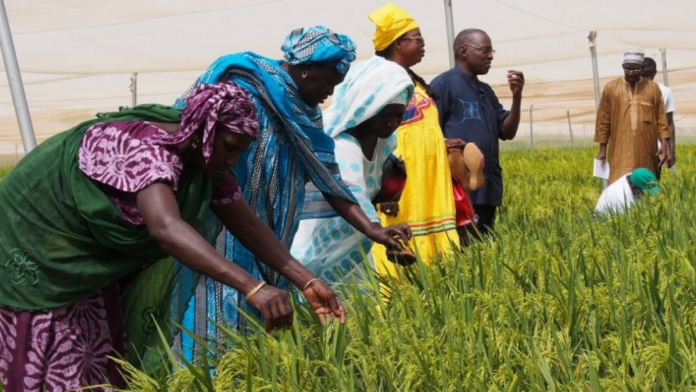News in Brief:
– Senegal’s women farmers are spearheading a movement towards rice self-sufficiency, driven by national pride and a need for food security amidst climate change challenges.
– Empowered by access to finance and training, these women are not only feeding the nation but also cultivating resilience and sustainability in the face of global uncertainties.
In the heart of Senegal, a quiet revolution is brewing, led by the country’s resilient women farmers. As global challenges like climate change and economic instability loom large, these women are not just feeding their nation; they’re sowing the seeds of a more sustainable future.
The preference for locally grown rice in the west African country isn’t just about taste; it’s about national pride and food security. With more than half of the country’s rice imported, reliance on foreign sources has become a vulnerability, especially in times of crisis. But as the demand for home-grown rice surges, Senegal’s women farmers are stepping up to meet the challenge.
Empowering women against climate change challenges
Climate change has brought unprecedented challenges to Senegal’s agricultural landscape. Erratic rainfall and soaring temperatures threaten crop yields, forcing farmers to adapt or risk losing everything. For women like Ndobou Sene Fall and Aby Diop, who cultivate rice in the Senegal River Valley, these changes mean constant adjustments and increased financial strain.
Despite the hurdles, organisations like the International Finance Corporation (IFC) and Baobab Group are empowering women farmers with access to finance and training. Through initiatives like the Base of the Pyramid Platform, these women are gaining the resources they need to weather the storm of climate change and secure Senegal’s food future.

For women like Korka Diaw, farming is more than a livelihood; it’s a legacy. With determination and support, she’s transformed her small plot of land into a thriving agricultural enterprise, providing jobs and nourishment for her community. Now, she’s paying it forward, helping other women farmers navigate the challenges of modern agriculture.
As Senegal strives for rice self-sufficiency by 2030, the role of women in agriculture has never been more crucial. With access to finance, training, and technology, these women are not just cultivating crops; they’re cultivating resilience. And as they sow the seeds of a more sustainable future, they’re paving the way for generations to come.



